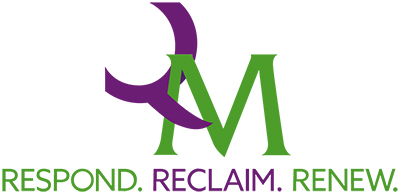Simply flashing a badge is no longer adequate. All employees, contractors and visitors looking to access mining giant Vale’s facility in Sudbury, Ont. need to answer a series of questions and pass a temperature check before being allowed on the property.
“If they fail the four questions or the temperature, they actually aren’t allowed on-site,” said Chase Porter, the general manager of Emergency Management and Environmental Response Services at QM Environmental. “They get redirected to the side and security and upper management come and take care of the situation.”
Vale isn’t alone. With the COVID-19 continuing to upend conventional business practices, more and more industrial companies, including those in construction, are implementing rigorous pre-screening procedures to keep on-site staff safe.
In Sudbury, Vale has turned to industrial and environmental service firm QM Environmental to set up the two-stage screening process just off-site. Staff or visitors answer a handful of questions at an initial booth before moving on to the temperature screening. “They don’t have any positive cases, they’re just making sure they’re preventing any further risk to their employees and contractors coming to the site,” Porter added.
QM, which also takes on a number of remediation, hazardous materials and demolition projects, said it’s seeing more and more demand for its services — both preventative screening and after-the-fact decontamination.
Within construction, contractors have always kept a close watch on who has access to their job sites, but the pandemic is driving most to step up their pre-screening procedures and keep closer tabs on the health of the workers coming through their gates.
Mike Mancini, the health and safety manager at Aurora, Ont.-based Matheson Constructors, for instance, said the company is requiring staff to check in before they even get to the job site. It’s added an online self-assessment tool to catch issues early.
“The main intent is to have workers complete this before they even leave their house in the first place to make sure they’re safe to come to work as opposed to showing up with symptoms and then being denied access,” Mancini said in a webinar hosted by the League of Champions — a safety group affiliated with the Ontario General Contractors Association.
The questionnaire lines up roughly with the series of questions the Canadian Construction Association (CCA) is advising all contractors across the country to ask before allowing anyone on job sites. They’re designed to weed out anyone with flu-like symptoms, or those that may have come in contact with someone with COVID-19.
Once workers complete the Matheson survey, any issues are automatically flagged and alerts sent to the company’s health and safety team. Assuming workers clear the off-site survey step, they also run through the questions again to confirm their answers once getting to site. The company has set up screening booths at site entrances to ensure all staff and visitors are checked.
“[The self assessment] also helps to avoid contamination in the screening line to make sure that all workers in the line don’t pose a problem to each other,” Mancini said.
While Matheson is taking care of this process in-house, software companies are also offering new tools to help builders adjust to the unprecedented health situation. Saskatoon-based SafetyTek is offering a COVID-19 workforce analysis tool for free. Along with distributing and tracking self assessment forms, the tool lets a company send safety updates to its workforce — such as videos or PDFs — and then confirms the information is getting through.
“You can blast it to a controlled number of audience members where we track the ingestion of that content so they can refer to who’s read it and who hasn’t read it and of course then follow up,” Ryan Quiring, SafetyTek’s founder and CEO said.
Through tracking the ingestion of the content, Quiring said companies can help close the troublesome gap between head offices and job sites — an issue the coronavirus pandemic has only exacerbated with non-essential staff being asked to work from home.
While most contractors have begun asking key questions to screen out any workers that may put job sites at risk, others are taking the same approach Vale and using thermal screening on projects.
Among others, Mississauga, Ont.-headquartered Maple Reinders, has started using thermal cameras on several sites.
“We’re doing a two-strike system,” said Craig Sparks, the company’s national Health and Safety manager, in the League of Champions webinar last week. “That person is to stand off to the side for three to five minutes, receive another reading, if it’s over 38 C again, that individual is denied access to the site.”
For the time being, the thermal procedure is site-specific, but Sparks said the employee buy-in has been encouraging. He noted staff have been willing to comply with the added step, as it instills confidence that all workers allowed on-site are healthy.
Across the wider construction industry, contractors continue to make headway on projects despite these extra precautions designed to safeguard worker health.
According to Mary Van Buren, the president of the CCA, one of the early takeaways from the pandemic has been the sector’s ability to quickly enact measures such as screening and social distancing.
“We can adapt quickly and effectively to more stringent health requirements to protect workers, their families and the public,” she said. “We have a strong safety culture that has shown that we can and are resilient.”
